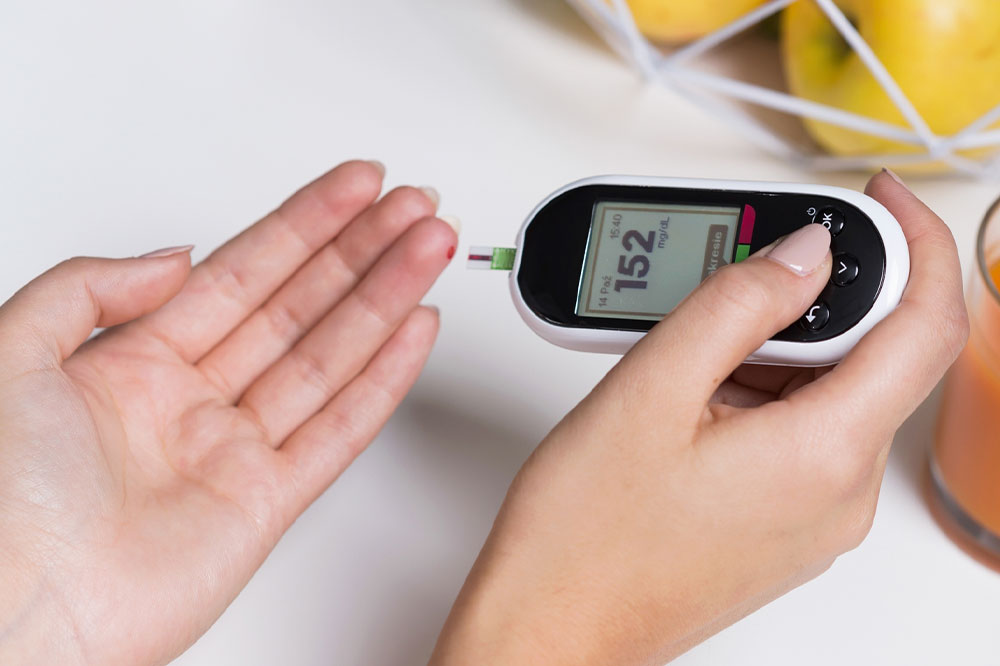Can You Heal from Diabetic Nerve Damage? Exploring Management and Hope
Diabetic nerve damage, or neuropathy, is a chronic condition caused by prolonged high blood sugar levels. While a complete cure remains unavailable, effective management strategies—including medication, lifestyle changes, and regular monitoring—can significantly alleviate symptoms and prevent further nerve deterioration. Advances in research offer hope for future therapies aimed at nerve regeneration. Early diagnosis and proactive care are essential for improving quality of life for individuals with diabetic neuropathy. This article explores causes, symptoms, management options, and future prospects related to diabetic nerve health.

Can You Heal from Diabetic Nerve Damage? Exploring Management and Hope
Diabetic nerve damage, medically termed diabetic neuropathy, is a common complication arising from prolonged high blood sugar levels in individuals with diabetes. It primarily affects nerves throughout the body, leading to symptoms such as pain, tingling, numbness, and weakness, particularly in the legs, feet, arms, and hands. This condition is a result of nerve cell injury caused by sustained hyperglycemia, which damages the blood vessels supplying nerves, as well as the nerves themselves. While it is a challenging complication, understanding its causes, management strategies, and evolving treatments provides hope for those affected.
Extensive research indicates that persistently elevated blood glucose levels significantly increase the risk of nerve injury, leading to diabetic neuropathy. Although current medical science has not identified a definitive cure for this chronic condition, advancements focus on symptom management, slowing progression, and improving quality of life. Proper control of blood sugar levels remains the cornerstone of preventing further nerve damage. Moreover, early diagnosis and proactive care are essential in managing symptoms effectively.
Understanding Symptoms and Risk Factors
Persistent numbness or tingling in extremities
Sharp, burning, or stabbing pain in affected nerves
Muscle weakness and coordination issues
Increased susceptibility to infections and foot ulcers
Loss of sensation, increasing injury risk
The risk factors for developing diabetic neuropathy include prolonged duration of diabetes, poorly controlled blood sugar, high blood pressure, high cholesterol, smoking, and alcohol consumption. Recognizing these factors can help individuals take preventative measures early on.
Current Treatment Options and Management Strategies
While a complete cure remains elusive, numerous treatments aim to alleviate symptoms and prevent progression. Medications such as pain relievers, anticonvulsants, antidepressants, and topical agents are used to manage pain associated with diabetic neuropathy. Several newer drugs like Invokana and Tanzeum are tailored to help regulate blood sugar, reducing nerve stress. Besides pharmacological approaches, lifestyle modifications play a pivotal role.
Effective Lifestyle and Home Care Tips
Consistently monitor and maintain optimal blood glucose levels
Engage in regular physical activity to enhance circulation and nerve health
Adopt a balanced, nutritious diet to support nerve repair and general health
Schedule routine foot exams to catch injuries or infections early
Practice good foot hygiene and wear appropriate footwear
Avoid smoking and limit alcohol intake, which can exacerbate nerve damage
Furthermore, complementary therapies such as physical therapy, acupuncture, and nutritional supplements might help improve nerve function and reduce discomfort. Early intervention and diligent self-care are crucial for anyone living with diabetic neuropathy.
The Future of Diabetic Neuropathy Treatment
Research continues into regenerative medicine, nerve growth factors, and advanced pharmaceutical therapies aimed at repairing nerve damage. Scientists are exploring ways to promote nerve regeneration and restore function, which could revolutionize treatment options in the future. Meanwhile, ongoing studies emphasize the importance of strict diabetes management and lifestyle adjustments to prevent nerve deterioration.
In summary, while diabetic nerve damage is a complex and often progressive condition, patients can take meaningful steps toward managing symptoms and preventing further injury. With comprehensive care involving medication, lifestyle changes, and vigilant monitoring, many individuals continue to lead active, fulfilling lives despite this diagnosis.





